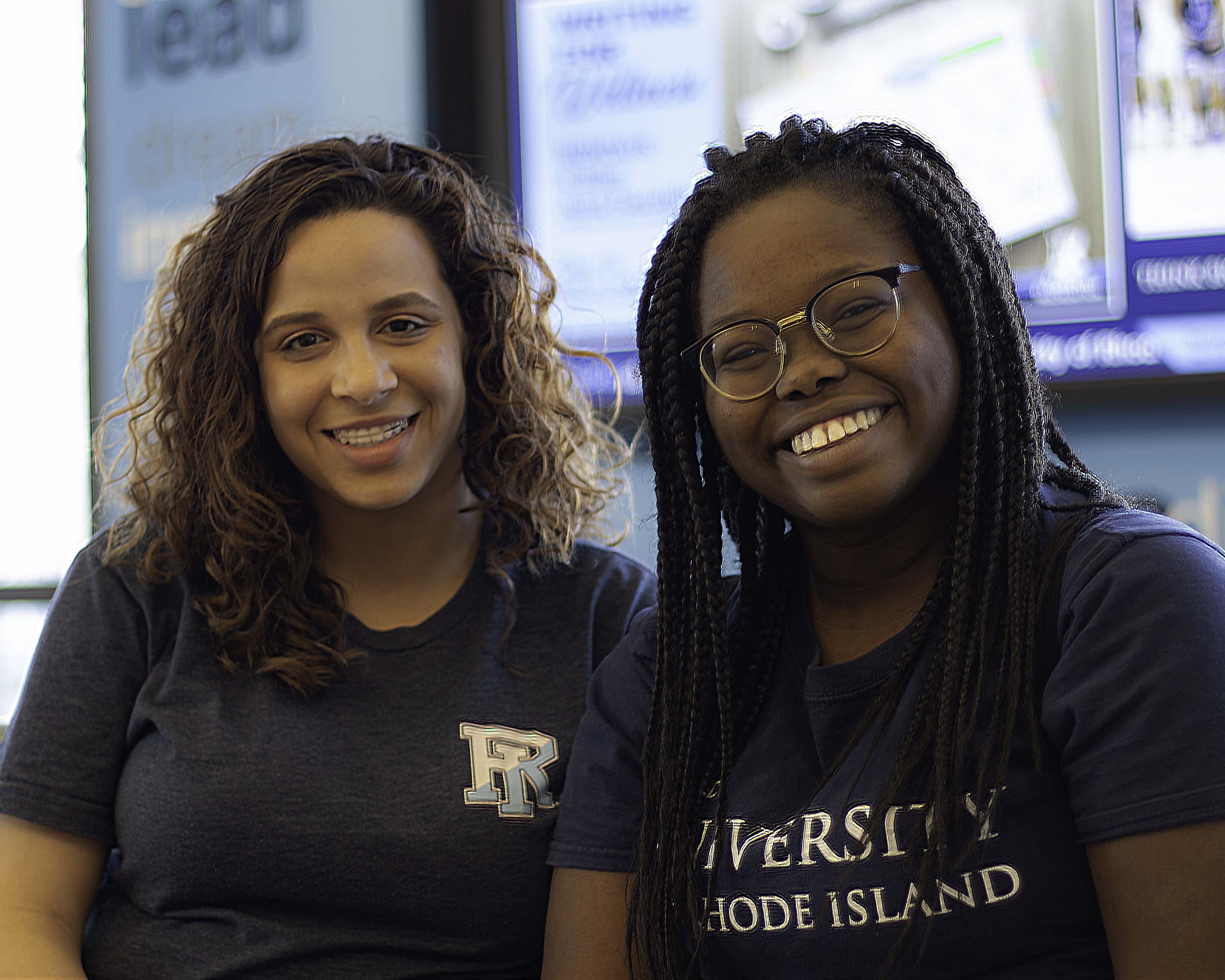Maya Suggs (left) and
According to the First Generation Foundation, an estimated 50 percent of the college population consists of students whose parents did not receive a college education. The National Center for Education Statistics also said that 30 percent of all entering first-year students are first-generation college students.
While other students have parents who once toured campuses themselves or have filled out the Free Application for Federal Student Aid (FAFSA) in the past, this can be entirely new to first-generation students and their families.
“Every tour I went on for a college or university was through a club or organization I was a part of during school,” Maya Suggs, a first-generation University of Rhode Island student said. “My parents didn’t have the time to take days off of work to tour colleges with me. I had to do that on my own. I had to find where I fit in [and] my major. All these other things I had to do all on my own and I wish that other people understood that’s not easy.”
For Suggs, a big reason she was able to attend college was because of URI’s talent development (TD) program. The TD program offers in-state students who come from a disadvantaged background a $12,000 scholarship, and the opportunity to take six weeks worth of classes over the summer going into college. Suggs originally thought she would be working at the prison her father works at after high school but getting accepted into this program made her realize the additional options she had.
“Once I got accepted into that, I was like ‘College is something that I could do,’” Suggs said. “It was a really great moment because my family was super proud and I was totally mind blown that I could actually do it.”
Senior Meinca Pinchinat, alongside her sister, will also be the first in her family to receive a college degree. However, her and her sister didn’t really know what to expect when it came to looking at potential colleges. She said that having a specific advisor for this would’ve been a big help.
“The whole process was kind of weird for all of us,” Pinchinat said. “We honestly didn’t really know what we were doing. We were just like ‘Alright we’re supposed to go on a college tour. Let’s go on a college tour.’ We didn’t really know what we were looking for in schools. We didn’t even know what questions to ask to know what we didn’t know.”
Pinchinat said that even though her sister is older, and technically went through the college application process first, she still has encountered many issues with FAFSA and loans from being a first-generation student.
“Financial aid was the biggest struggle for all of us,” Pinchinat said. “Even with my sister through [it before me] we still struggled with her financial aid and mine. The amount of times my parents have had to call FAFSA is actually kind of crazy.”
It’s not just the struggles of sorting out financial aid and loans that come with being a first-generation student. According to Suggs, it’s also difficult to deal with other people taking their resources and their parents’ educational background for granted.
“I wish people understood that education and college is a privilege,” Suggs said. “It’s something you earn the right to be here. I never had someone to teach me how to fill out a common application. I had to learn how to do that on my own. I had to write my college essay on my own. I didn’t have help. My friends, they talk about how their SAT prep tutors and whatever and I barely took my PSATS. I wish my parents had the ability to sit down and fill out my college application with me. I wish my parents had to the ability to sit down and tour colleges with me.”
However, while all students have parents and other loved ones proud of them on graduation day, first-generation students like Suggs and Pinchinat will have their families feeling proud on a different scale.
“My parents are very happy that we even made it to this point in our lives and that we’re doing relatively well in all of our classes,” Pinchinat. “We’re kind of the first ones to go to a four year school and then grad school, so I think everyone is really excited that that’s going to be apart of our family now.”
Suggs said that there are many resources that aren’t advocated for first-generation students such as scholarships, financial aid assistance and free and reduced items. On URI’s campus specifically, Suggs said there are free printing services, a food pantry and clothing drives, but they are not advertised well.
“We have all these things that aren’t broadcasted as much as they should be to the student body and if those things did it would probably make a difference financially and impact a lot of people lives because I know a lot of first-generation students who struggle with money, struggle finding food and struggling with finding their support system,” Suggs said.

